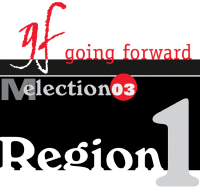 Betsy
Burke Betsy
Burke
Question from GF: It is said
that individuals in group decision-making situations tend to keep their
own misgivings about a course of action to themselves to maintain harmony
among the group. What value do you place on voicing independent opinions
in AMC discussions, especially if such opinions are counter to those
with more years of service on AMC?
[EDITOR'S NOTE: Ms.
Burke did not reply to the invitations to answer this question in
Going Forward.]
Marghretta McBean
Question from GF: You have
been active in a large local group. How do you see yourself transferring
your local group expertise to the regional level when the rest of the
local groups in your region are smaller than your own local group?
Answer:
I have been pondering this issue ever since I decided to run for the
office of RVC1. Not only am I a member of the largest local group in
American Mensa, I am also a true "Native New Yorker", used
to the bright city lights and never-ending tableaux that makes New York
City what it is.
However, as a true New Yorker, I know the reality: New York City is
hundreds of small towns and villages, each with its own culture and
in many cases, language(s). I have met with and spoken to Mensans from
all over the United States and the similarity of issues that face local
groups small, medium and large is uncanny:
- There are great numbers of "invisible" members: people
who never, ever attend events, vote in elections, say hello
to fellow members.
- A dedicated "inner circle" (sometimes composed of only
one or two people) is the nuclei of officers and volunteers.
- There is at least one "problem" member who is "socially
challenged"; disrupting meetings, harassing other members, the
list goes on.
- Meeting space is hard to find, and good meeting space is even harder.
- Any event with free food brings people out. Add chocolate and droves
appear.
- Politics makes strange bedfellows. In Mensa, we're talking really
strange. Some members are still living (and reliving!) past elections
and political alignments.
- Membership is getting older (not me, of course!); recruitment and
retention is hard-won.
As a Zipcode Party Coordinator for many years, I saw the immediate
results of reaching out to members, many of them "invisible".
People who would never go to a regular Mensa event, would show up at
a Zipcode Party and be pleasantly surprised to meet "normal"
people or even their next-door neighbour (true story!). Many members
are stay-at-homes, thinking meetings are composed of "socially
challenged" and/or politically enraged persons. Most of our members
do not fit this description; it just takes time and patience to get
the word out.
After lobbying for years to establish fiscal oversight following the
1986 GNYM AG debacle, I was appointed as the first Budget Committee
Chair. This led to the establishment of an annual Financial Review Committee,
on which I have also served. All groups, regardless of size, need to
have an understanding of their finances. By "opening the books"
members can see the real legs on which their group stands.
Delegation is the key to any successful group, corporate or volunteer:
no one person can or should be doing everything. It may initially take
more time to locate, recruit, and train co-workers, but the results
are well worth it. Dedicated individuals are empowered and can, in turn,
"pass the torch" to their successors.
I feel that if no one steps forward to do a task, then that task is
not worth doing, no matter how disheartening that may be to other members.
Too many good groups have slowly killed themselves through burnout:
no "newbies" and the "oldies" just can't keep on.
The important step in avoiding such a drastic occurrence is constant
vigilance in keeping energy levels high, through job creation and rotation.
Conflict resolution is an important area of my expertise as well. I
am a good listener, impartial and extremely objective. In my tenure
as Ombudsman, I have seen what happens when good minds and intentions
can be subsumed by lack of empathy, anger and often vindictiveness.
Hopefully my skills in this area will not be needed.
In closing, I think it is my enjoyment in meeting people, finding out
about their background, interests and the like, that motivates me to
seek this office. I'm organized and have good follow-up skills, which
should stand me in good stead. Lastly, I think I provide a positive
image of Region 1 not only to the rest of Mensa, but also to the world.
—Marghretta McBean
New York, NY 10019
Previous Article | Contents
| Next Article
|